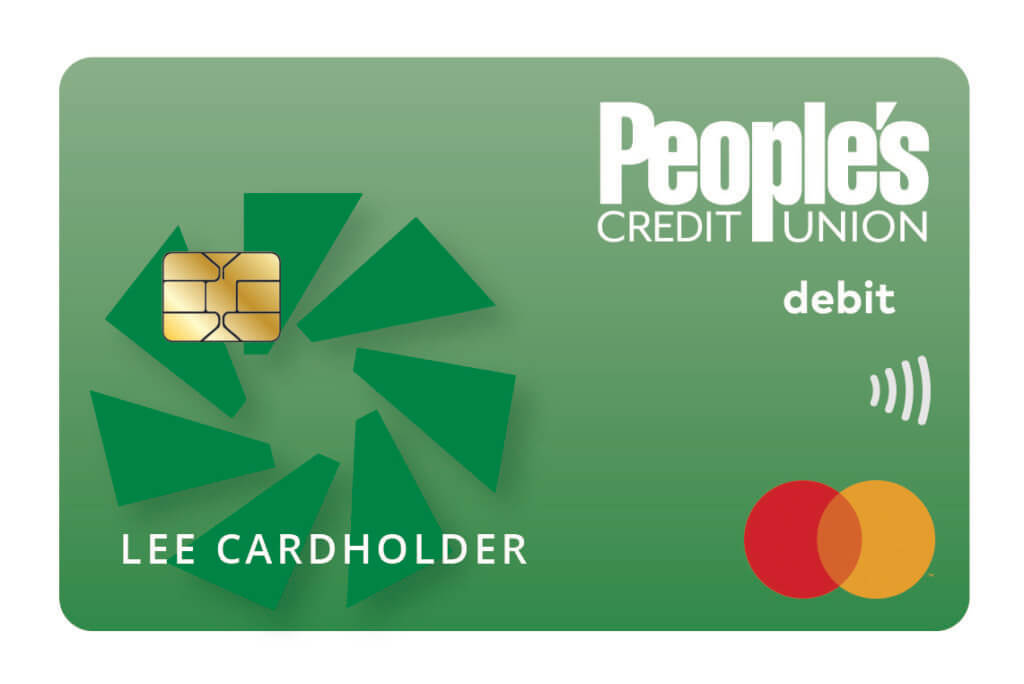Every Business Savings Account Includes Free
Instant Issue
ATM/Debit Card
Online Banking
and Bill Pay
Mobile Banking and
Mobile Check Deposit
Electronic Statements
with Check Images
ATM Transactions
within Networks
DISCLOSURES
Minimum opening deposit is $25. Up to $10 for checks and debit cards from another financial institution given at the time the checks/debit cards are presented. Interest rates are subject to change without notice. Other fees may apply, see current fee schedule for details. See a Member Service Representative for further details.
Account Options

Business Savings Account
An easy and convenient way for you to put your business’s money away.
We can help grow your savings while you’re busy growing your business.
- The Business Savings Account requires $5 to open
- You earn interest and pay no monthly service charge
How to Open
Please call our Member Service Center at 800.498.8930 for more information or visit one of our six locations to open your account today.
Business Money Market
A tiered interest rate account getting your business the most for its money. Enjoy the benefits of a high interest business savings account and low activity business checking account all in one.
- This account combines a competitive, tiered interest rate with the convenience of check writing privileges* on maintained balances as low as $2,500
- Interest tiers are offered at $2,500, $25,000, $50,000 and $75,000
- A monthly service charge will be waived if you maintain a minimum balance of at least $2,500
How to Open
Please call our Member Service Center at 800.498.8930 for more information or visit one of our six locations to open your account today.


Business Max Yield Money Market
Our Max Yield Money Market™ is a tiered rate account that can take your savings to the next level. As your balances move higher, so do your returns.
To open a new Max Yield Money Market™ account, you must currently have a Business Checking account. If you don’t already have one, we’ll help you open it.
- Enjoy the benefits of a high interest savings account and low activity checking account all in one
How to Open
Please call our Member Service Center at 800.498.8930 for more information or visit one of our six locations to open your account today.
Certificates of Deposit
Build your business’s funds with great flexibility and guaranteed interest.
- Our Business Certificates of Deposit allow greater flexibility and guaranteed interest over the term of the deposit*
- We offer a variety of terms for business members ranging from 3 months to 5 years
- Most Certificate of Deposit accounts can be opened with as little as $500
Penalties for early withdrawal apply. See a branch representative for details.
How to Open
Please call our Member Service Center at 800.498.8930 for more information or visit one of our six locations to open your account today.

Still Undecided? Start Here.
Rates
Active as of 12.22.2024
Business Savings Accounts
| Product | Minimum to Open | Minimum Daily Balance to Earn APY | APY* | How to Open |
|---|---|---|---|---|
| Business Savings Account | $5.00 | $100.00 | .05% | Contact Us |
| Business Money Market** | $2,500.00 | $75,000.00 | .25% | Contact Us |
| $50,000.00 | .15% | |||
| $25,000.00 | .15% | |||
| $2,500.00 | .10% | |||
| Business Max Yield Money Market*** | $2,500.00 | $500,000.00 | 3.00% | Contact Us |
| $50,000.00 | 3.00% | |||
| $2,500.00 | 3.00% |
DISCLOSURES*
*Annual Percentage Yield (APY) subject to change without notice. Fees could reduce the earnings on selected accounts listed above.
**Must maintain a minimum daily balance of $2,500.00 to avoid the $10.00 service charge and to obtain the disclosed Annual Percentage Yield (APY).
***Must maintain a minimum daily balance of $2,500.00 to avoid the $10.00 service charge and to obtain the disclosed Annual Percentage Yield (APY). Must have an active Business Checking Account to obtain the higher rate of interest. If the checking is closed at anytime of the month, the account will pay the current Personal Money Market rate of interest.
Related Products

Frequently Asked Questions
What can we help you with today?
The documents required to open a business account vary based on the type of business entity:
- Limited Liability Corporation or LLC
- Articles of Incorporation
- Department of Revenue IRS Employer Identification Number (EIN) form
- Driver’s License (Valid)
- Sole Proprietorship
- Department of Revenue IRS Employer Identification Number (EIN) form or your social security card if you would like the business to be under your social and not reported as a separate entity.
- Driver’s License (Valid)
- Trade Name Certificate – You can apply and get this form at the town hall where you reside/or business.
- Corporation
- Partnership Agreement for the name of the business and its partners
- Article of Incorporation
- Driver’s License (Valid)
- Department of Revenue IRS Employer Identification Number (EIN) form
- Company
- Article of Incorporation
- Driver’s License (Valid)
- Department of Revenue IRS Employer Identification Number (EIN) form
- A Limited Liability Company Or LLC is a legal entity formed at the state level. An LLC exists separately from its owners—known as members. However, members are not personally responsible for business debts and liabilities. Instead, the LLC is responsible.
- A Sole Proprietorship is an unincorporated business owned and run by one person. This option is the simplest, no muss, no fuss structure out there. You are entitled to all the profits of the business. However, unlike an LLC, you are also responsible for all of the liability.
- A Corporation is a company that is related to larger businesses and entities. There is no single owner, the shareholders are the owners.
- A Company is a business related to a small business or entity. The owners of a company are its members.
A Trade Name Certificate is required for the purpose of identifying those individuals doing business in a required state. All businesses are required by Rhode Island State Law to register their trade name in the Town Clerk’s Office. Forms are available at the town hall during regular business hours.
No. A business can be a beneficiary of a trust, but not a trust itself because it is a separate entity.

